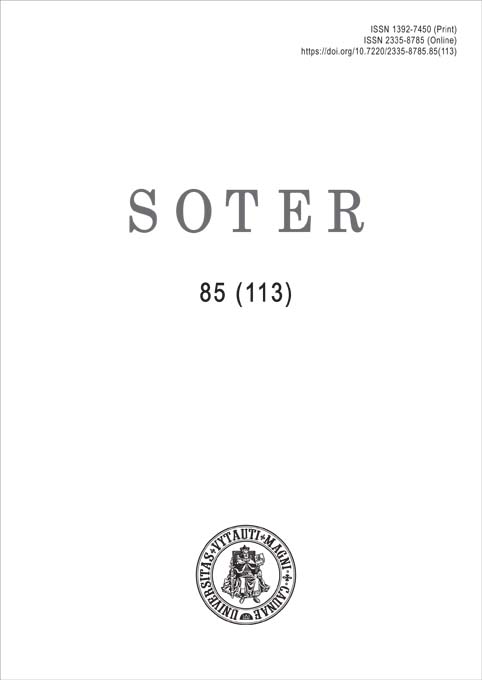Mokslinis tomistinės metafizikos pobūdis
The Scientific Nature of Thomistic Metaphysics
Author(s): Albinas PlėšnysSubject(s): Christian Theology and Religion, Metaphysics, Philosophy of Middle Ages, Philosophy of Language
Published by: Vytauto Didžiojo Universitetas
Keywords: Metaphysics; Philosophy of language; Analogy; Concrete concept; Abstract concept;
Summary/Abstract: Since Aristotle’s time, metaphysics has been considered a science. However, the value of scientific metaphysics was doubted during the Enlightenment. In contemporary philosophy of science, metaphysics is either considered meaningless or not belonging to science. The most rigorous definition of science was presented by R. Carnap and Popper. According to R. Carnap, scientific statements must be meaningful, they must be verifiable, and scientific terms must have meanings. We will consider the requirement of meaning and significance as an important feature of a scientific theory. Popper believes that a theory is scientific if it has a certain logical structure, i. e., that if the statements of the theory are not confirmed, we should abandon the theory. Thomistic metaphysics meets both the requirements of meaning and significance. St. Thomas describes the meaning of a word in three ways. First, the meaning of a word is what the mind seeks to express in words; and for things defined, it is the definition that constitutes meaning. Second, sometimes the meaning of a word is revealed by pointing to the object. Third, the meaning of a word is described according to the word’s use in language. According to Thomas Aquinas, this third way of determining meaning is the most important in metaphysics, as many of its concepts do not have a genus, and therefore cannot be defined. The article aims to show that Thomistic metaphysics meets all the requirements of a scientific theory, as it contains a detailed theory of meaning and the criteria for truth applies to its claims.
Journal: SOTER: religijos mokslo žurnalas
- Issue Year: 113/2023
- Issue No: 85
- Page Range: 5-20
- Page Count: 16
- Language: Lithuanian

